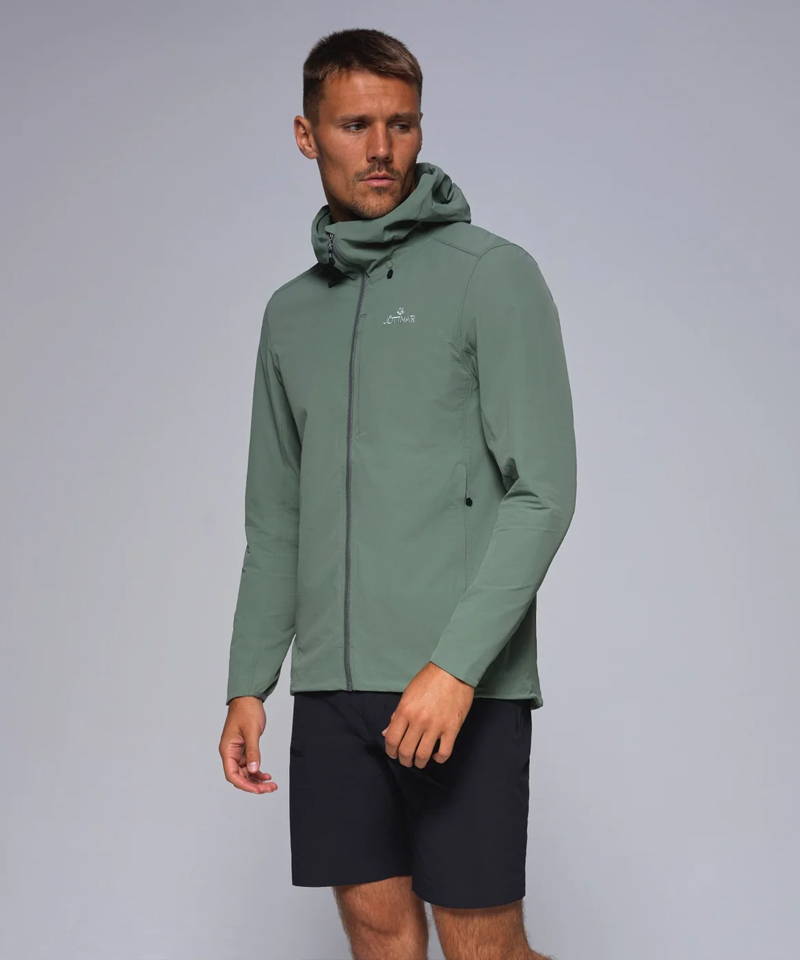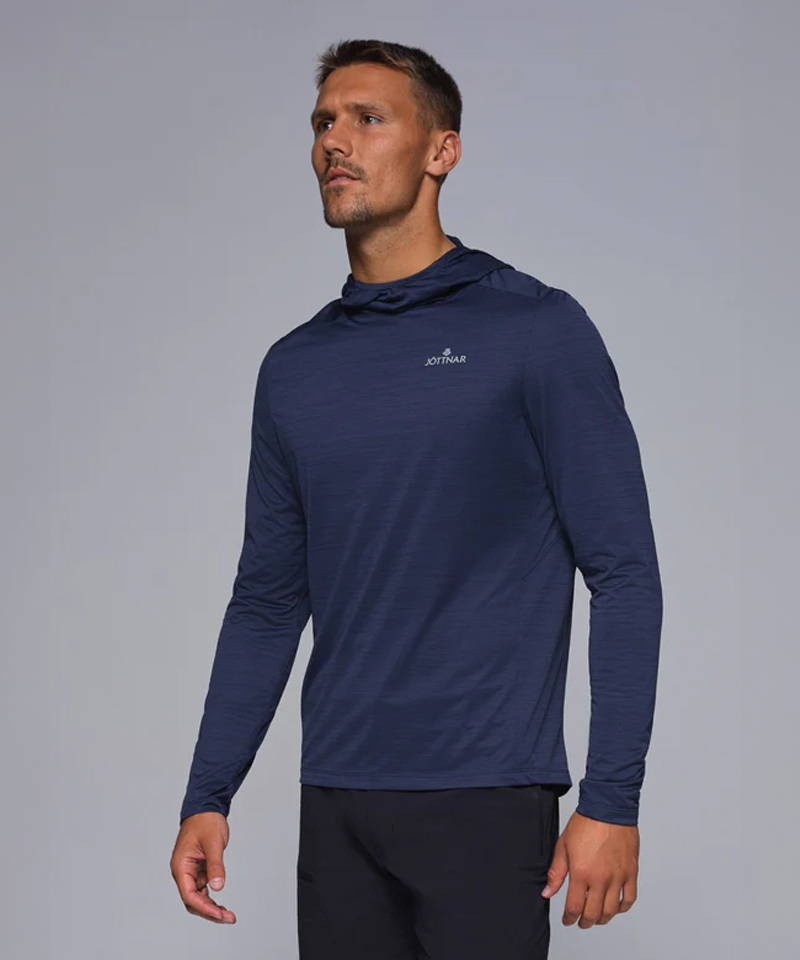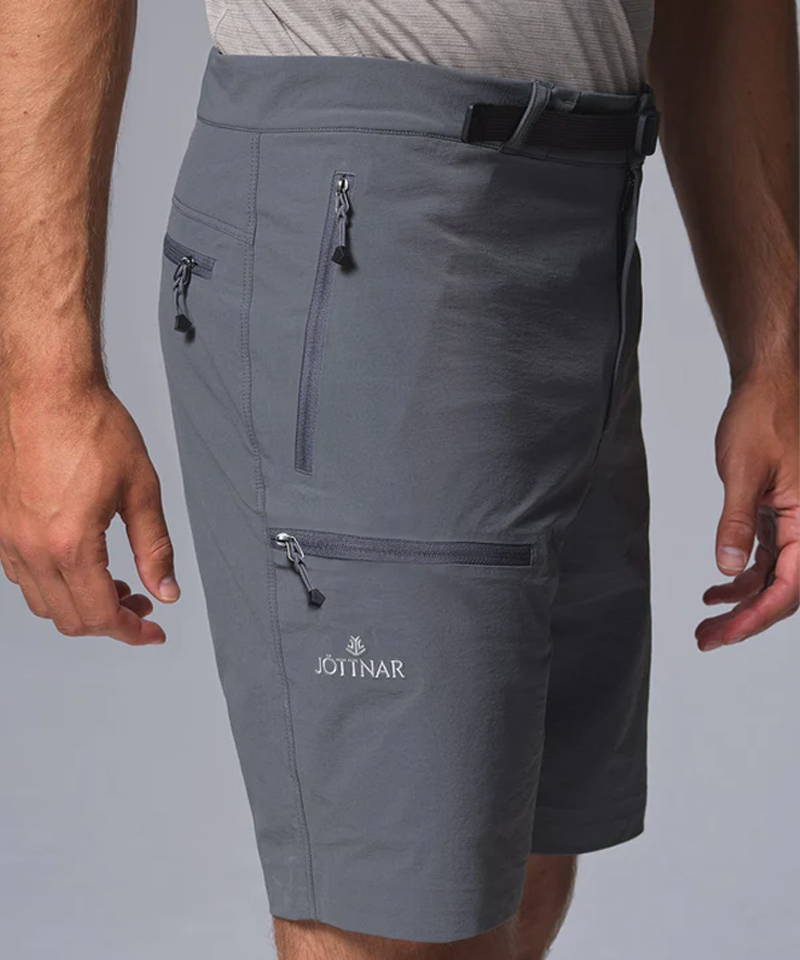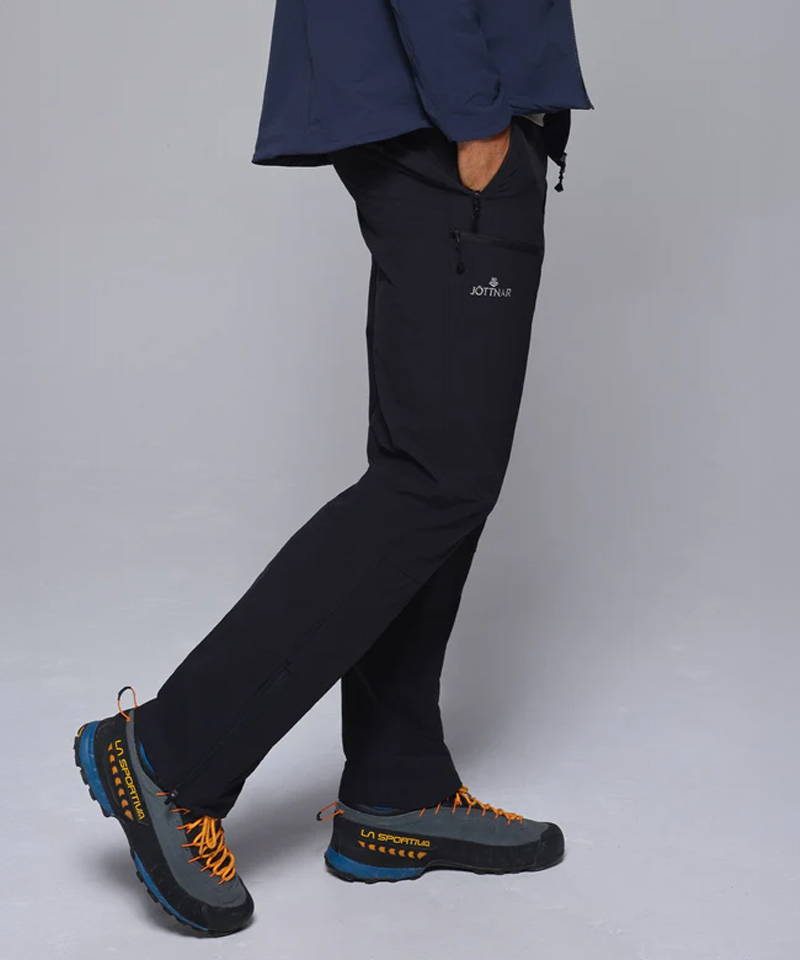


An Interview with Simon Jeffries
Special Forces, performance coach, Jöttnar Pro Team member.
Simon Jeffries is a new member of the Jöttnar Pro Team. An adventurer and former Special Forces operator, he now runs a performance mindset coaching business.
We met at his Bristol home and talked about upbringing, the reality of Special Forces selection, fighting the Taliban, building his company, and how the development of a healthy mindset plus time outdoors really are key to a contented and successful life.
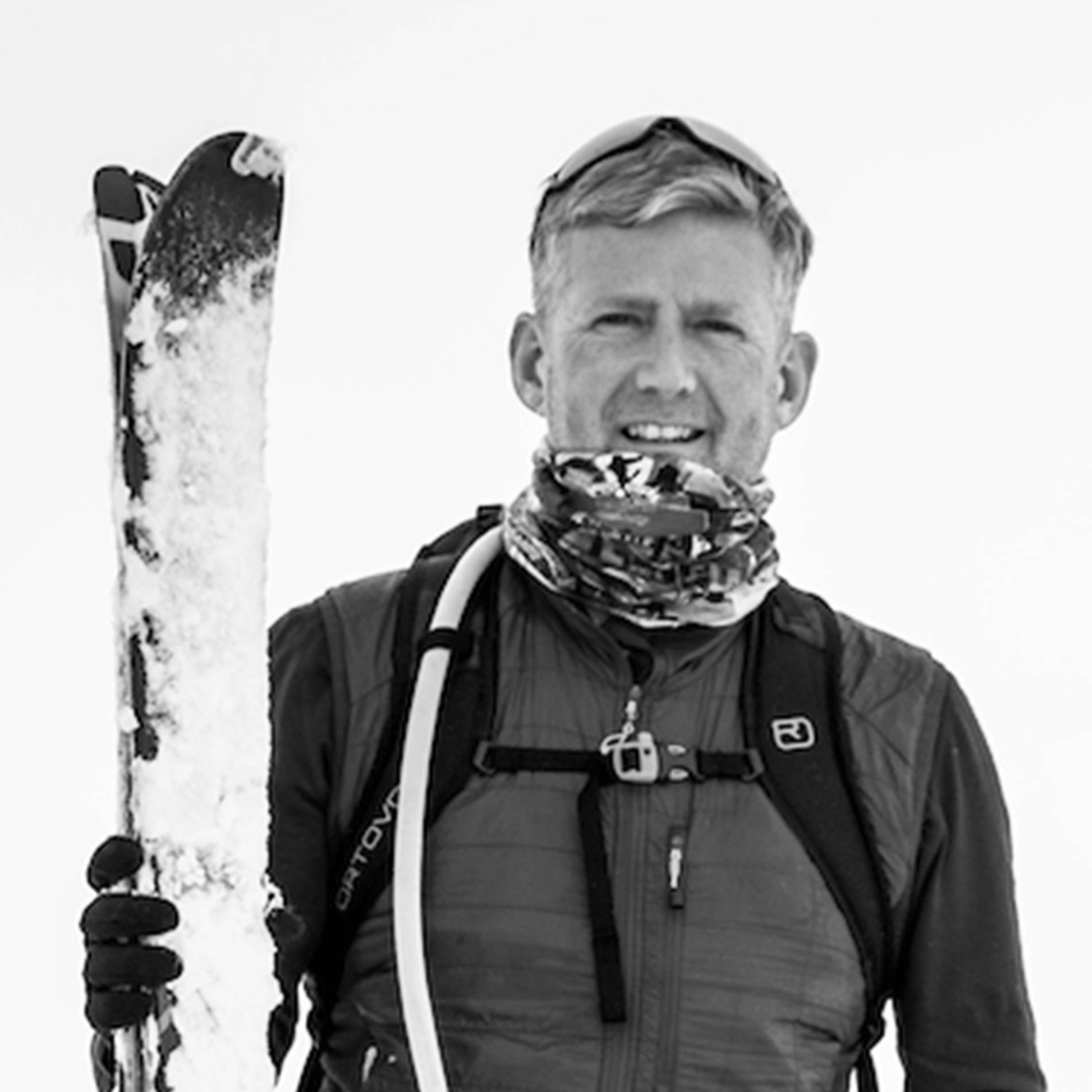

An Interview with Simon Jeffries
Special forces, performance coach, Jöttnar Pro Team member.
Simon Jeffries is a new member of the Jöttnar Pro Team. An adventurer and former Special Forces operator, he now runs a performance mindset coaching business.
We met at his Bristol home and talked about upbringing, the reality of Special Forces selection, fighting the Taliban, building his company and how the development a healthy mindset plus time outdoors really are key to a contented and successful life.

You grew up on a farm in rural Worcestershire.
Tell us about your childhood.
Simon: I grew up hunting, fishing, camping, in the Cubs and Scouts - constantly in the outdoors. A pretty feral upbringing. That's really what planted the seed of adventure, that love of being in the elements. And growing up on a small farm, you see the sheer graft required to make things work. It's 24 hours a day, seven days a week, 4am starts and 10pm finishes, rain or shine, all year round. And what I took away from that, growing up and looking at my parents, was the value of hard work in pursuit of something you truly love.
And then a recruiting advert for the Royal Marines stating that ‘99.9% need not apply’ caught your eye – and so you applied. Military training is often described less in terms of enjoyment and more in suffering.
Was this your experience?
There's a big difference between struggle and suffering, but people often confuse the two. It really comes down to how aligned or otherwise the actions you're taking are with your sense of identity. The military in general had always appealed, but I joined the Royal Marines because I considered them the hardest to get into. Again, the elements of sheer graft, difficulty, 24/7, year-round in the elements in pursuit of something that felt meaningful aligned with my sense of identity.
Throughout training there are so many unknowns. You don't know what's around the corner. But because it completely aligned with the person I saw myself as, yes, there were struggles of course, and it was hard, and it was testing – but a struggle, to me, is always in pursuit of something. It’s deliberate and it’s positive. Suffering, on the other hand, is a largely reactive state to be in, and one that rarely has any particular end state in mind. A struggle, if framed correctly in your mind, will bring satisfaction, whereas suffering is just stress, discomfort and negativity.



You won the prestigious King’s Badge for best recruit in training, amongst a clearly competitive field.
What traits do you think led to this award?
I think it's probably a commitment to the process, in striving to show up each day at your best. And that can be really hard to do when faced with something as seemingly never-ending as Royal Marine training. A lot of people lose their confidence because they project too far forwards into the future. The self-doubt creeps in and they worry about the outcomes, instead of remembering that really, all you need to do, is to do your best in each moment and to focus on the single step that's in front of you, executing that to the best of your ability.
I think more than that is embodying the commando qualities of courage, determination, unselfishness and cheerfulness. It’s a saying that ‘every Bootneck is a Royal Marine, but not every Royal Marine is a Bootneck.’ A ‘Bootneck’ is slang for a Royal Marine, but in a subtle and complimentary way. It’s generally applied to those who really embody the commando ethos, and who carry themselves in a particular way. I think the King’s Badge encompasses this.



After several years in the commandos you now decide to undertake selection for Special Forces.
What are Special Forces, and how do they differ from the conventional military?
Special Forces are akin to the tip of the spear from a state-level military perspective. They operate ahead of and separately to the conventional military, are assigned strategic-level tasks, and generally under conditions of secrecy.
It's a compact organisation, comprising multiple small but incredibly well-resourced teams, made up of individuals who are physically and mentally capable of operating for long periods of time in dangerous conditions. Because teams tend to operate outwith the safety, communications and resupply bubble of the conventional military, it’s a typically high trust environment. Everybody on a team needs to perform at a high level, with minimal margin for error and with a requirement to make sound tactical decisions in line with the broader picture. It’s a far more independent way of operating than the conventional military, and therefore comes with a necessity for high professional competence, initiative and adaptability.
Initiative, adaptability and determination really are key. You come up against a huge array of complex problems, which you need to be able to cope with – especially under pressure. It’s a certain type of person who can do this.



And how would you describe the difference in culture between the Royal Marines and the Special Boat Service (SBS)?
The Royal Marines are renowned for being a grown-up, confident, organisation with very little of the shouty-shouty stuff that you see across most of the rest of the military. Everyone in the Royal Marines has been through an arduous selection course and so there’s a high degree of trust and mutual respect.
The SBS is the next level up from that. It's a much more relaxed environment, where formal rank is less of a thing. Everyone there has met an exactingly high standard in SF selection, and so with that comes trust. It’s expected that everyone has the self-motivation to keep on top of personal discipline and to perform at a certain level, and you're left alone to do that. Freedom and individuality are far more abundant, which reflects the operational reality of there often being just four or six of you on the ground.


How did you physically prepare for Special Forces Selection?
Nowadays, there’s so much out there in terms of information and training schedules. Candidates have become a lot more scientific in their approach, I think. There wasn’t much at all when I went through, but because I've always had an interest in performance mindset, I asked myself, ‘how would an endurance athlete approach Selection?’. The jungle phase was a complete unknown, but the initial phase in the Welsh mountains – carrying weight over harsh terrain, day after day for weeks on end, was something I thought I could plan for. My aim was to finish this phase as strongly as possible, and not unnecessarily degrade myself, in order to increase my chances in the jungle phase that followed. I'd come across Clive Woodward talking about the 1% principle, which he used with the 2003 rugby World Cup team. And I really took that and applied it to my preparation.
I did a lot of strength work, building up the muscles and ligaments, whilst also building up the aerobic engine via endurance work. In terms of acclimatising to weight on my back, it was a mix of longer days, eight hours or so, out in the hills with a light-ish 30 pounds, combined with shorter but heavier days. I’d find a steep hill, stick on a podcast, and just walk up and down it for three hours. I’d complement all of this with long unweighted runs and gym sessions.
Nutrition-wise, I adopted a 4:1 programme where my intake was four parts carbohydrate to one part protein. So a steady intake of carbs, but also a drip-feed of protein to help with muscle and ligament strengthening. I also made sure I had a chocolate bar or gel sachet before each big hill, with the sugar helping to stave off the worst of things. I tried as best as I was able to shape my approach as closely as possible to the way in which an athlete would prepare, and put a lot of emphasis on finishing this first phase in the best possible shape.
"Just to survive, you need a level of skill that puts you in the one percent of the one percent."
Commando Ridge and the Mountain Leader Cadre: a film by Simon Jeffries and The Natural Edge.
So elite-level physicality is a major factor, but what about mindset?
How does the mind become conditioned to serve in parallel?
The biggest thing, and this applies so widely in life, is that when attempting difficult things, you must have that fundamental desire to go through the process in of itself. If you just want the money, the cool kit, the kudos and all the rest of it, you won’t make it through. It's so hard and it gets so dark that you need that desire deep inside you, a full commitment to testing yourself, to staying with it. For me, there was no way I was coming off the course, unless I was pulled off medically or was told I’d failed.
That's the only way. No matter what happens, I will be there. And if you don't have that as your base mindset, no suite of coping tactics will get you through. It’s the same with most things. Basically, the harder anything you want to do in life is, the more intrinsically aligned with it your sense of identity must be.
And then on top of that, it's the same thing that helped me through basic training in the Royal Marines: one step at a time. If you look at that whole six-month process and start projecting forward, it becomes overwhelming. Just take it one bite at a time, and figure out the next part when you get there.


You passed selection and joined the SBS, where three combat tours of Afghanistan followed.
Tell us about that experience.
You know, in many ways, what we were doing was far safer than what the conventional ground forces in their isolated patrol bases were doing. They were in static positions, in full view of the Taliban, and with many of the advantages of a Western military effectively ceded. The enemy knew where they were, what they were likely to be doing, and so were able to operate with a degree of impunity. British and allied soldiers were forced into a largely defensive and reactive posture in Afghanistan. My now business partner, John, is a former Royal Marine and he was drafted into his particular patrol as the point man. All of his predecessors had been hit. Imagine that, you’re 18 years old, and you know that every other person in your position has been killed. Every time you step out the patrol base door, just the mental pressure of basically rolling a dice with your life.
Whereas the opposite of all this was true for Special Forces. We were targeting high-level guys, and we had all the assets at our disposal. We’d spend a week, two weeks, working up the target with drones, UAV footage, building up a pattern of life. And then once we had that, launching in the middle of the night, landing on a compound roof, every advantage was with us. The Special Forces reality is one of variety: it’s compound land-ons, vehicle interdictions, blacked-out helicopters, long-range mobility patrols for weeks at a time – often to places no forces have ever been. There was a real adventure element to it also.
"It’s exactly what I’d joined to do and who I wanted to be. Everything had come together."
You now decide to leave the military and you find yourself working in a corporate job in London, which you’ve described as soul-destroying.
What made it so?
Again, identity. I was completely misaligned, and the best way to describe it is friction. Friction each day, which showed up in everything – work, relationships, training. Motivation, satisfaction, happiness all fell away.
It was just completely out of line with who I was.
I was working in project management within the construction industry, but was just fundamentally disinterested in it. Zero passion. It was everything from the suit I had to wear, living in the city, the congestion, everything. It wasn’t me.



So you draw a line and decide to set up your own business, The Natural Edge, which you’ve been growing ever since.
Tell us about that.
The Natural Edge is an online-based mindset development platform, with practical components. It’s the culmination of what I want to be doing, and allows me the complete freedom to work on something that I truly care about. It took a few years for John, my business partner, and me to really figure out the ‘what’, ‘who’, ‘how’ elements of the business, but it became increasingly clear that so many people out there are really struggling to maintain a healthy mindset, and are paying a price for this professionally and personally.
So we’ve developed a framework over the past six years which encompasses psychology, neuroscience and sociology, and which draws from our military experiences. The mind is primary; it drives everything in our lives, so if you can make consistent and sustainable wins there, then you have a strong foundation for getting what you want from life. Whether that’s health, fitness, wealth, professional development, relationships - all these things are going to become easier if you have a strong and serving mindset. The most common obstacles I see are perfectionism, procrastination, self-doubt, imposter syndrome, inconsistency, an inability to switch off, an inability to be present in the moment and a diminished sense of purpose.
I strongly believe that building a strong mindset is a practised skill, but few people treat it that way. Just listening to podcasts or reading self-help books are too passive to have any effect. Like going to the gym, you need to put the reps in if you expect to see any benefit. And there’s a useful link to the military here: you don't go from being a civilian to being in the Special Forces within a week, or through reading a book. It’s years of deliberate, progressive training and practice. Building a strong mindset is no different.


You're a strong advocate of micro-adventuring.
What is this and what's the value in it?
Credit to Alistair Humphries, the English adventurer and explorer who came up with the term. It’s basically the idea that you don't need to go to Patagonia or spend thousands to have an adventure. We always think of adventures as being things that necessitate being abroad, involving months of planning and expense. But in fact, adventure is entirely about the experience - and you can create that very simply, locally, just by getting out somewhere within an hour or two's drive, or even to your local woods, and camping out overnight.
It gives a real reset because you're reconnecting with human nature at its most basic. Being outside, under the stars, sat around a fire. Of course, it's fantastic to go away climbing or ski touring for multiple weeks. That's obviously going to be an amazing experience. But the point is, we don't have to wait for those things and have adventures only seldomly. You can go out on a Saturday, get into the local countryside for a long hike and camp out overnight. It’ll still feel adventurous, and if you do this regularly, you’ll see a big difference in your life.

Simon Jeffries is a member of the Jöttnar Pro Team and co-founder of The Natural Edge. Read more here.

